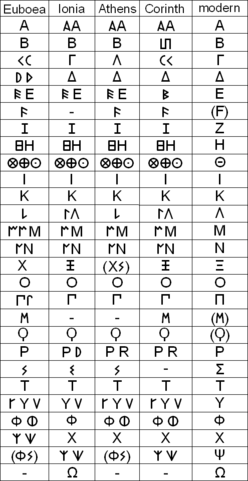Ancient Greek vs Modern Greek
Ancient Greek and Modern Greek are two forms of the Greek language with some differences in terms of philological changes. Greek belongs to the Greek group of the Indo-European family of languages, which includes other dialects like Doric, Ionic, and Attic. The most significant difference between Ancient Greek and Modern Greek is pronunciation. However, despite these differences, Ancient Greek is not as alien to Modern Greek as Latin is to Spanish or French. Ancient Greek transformed into Modern Greek over approximately 3000 years, making them cognate languages. Modern Greek is derived primarily from Ancient Greek and shares similarities in both phonological and morphological aspects. There are some differences in their word-formation or morphology.
A person who has studied Modern Greek is generally able to understand at least 50% of Ancient Greek texts since most roots are the same in both languages. However, there are differences in the usage of grammar. Both ancient and modern Greek also have syntactical differences, which involve the way sentences are formed. Ancient Greek underwent many phonetic and semantic changes to become Modern Greek. Phonetic changes affect the sound, while semantic changes affect the meanings of a word gradually.
What is Ancient Greek?
Ancient Greek is the form of the Greek language that existed from the 9th century BC to the 6th century AD. In terms of phonology, Ancient Greek had long and short vowels, several diphthongs, single and double consonants, and a pitch accent. In terms of morphology and syntax, Ancient Greek featured the optative mood, infinitive, dual number, dative case, and participles.
What is Modern Greek?
Modern Greek was found around 1453 AD. In the phonology of Modern Greek, the pitch accent has changed to a stress accent, most diphthongs have disappeared, and all consonants and vowels are short. In terms of morphology and syntax, Modern Greek lost features like the optative mood, infinitive, dual number, dative case, and participles but gained features like the gerund, auxiliary verb forms for certain verbs, and modal particles.
Key Takeaways
- Periods: Ancient Greek existed from the 9th century BC to the 6th century AD, while Modern Greek was found around 1453 AD.
- Letters: Ancient Greek only had capital letters, while Modern Greek has both capital and lowercase letters.
- Phonology: Ancient Greek had long and short vowels, several diphthongs, single and double consonants, and a pitch accent, while Modern Greek has a stress accent, fewer diphthongs, and short consonants and vowels.
